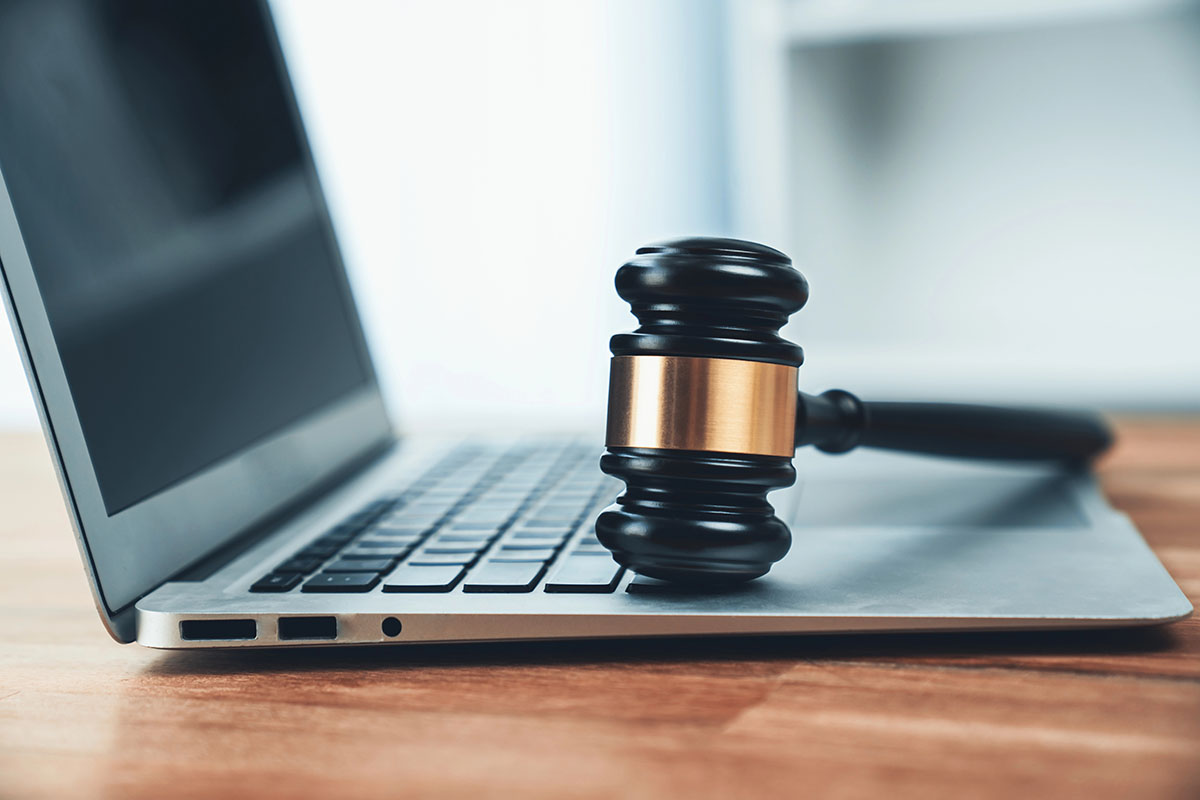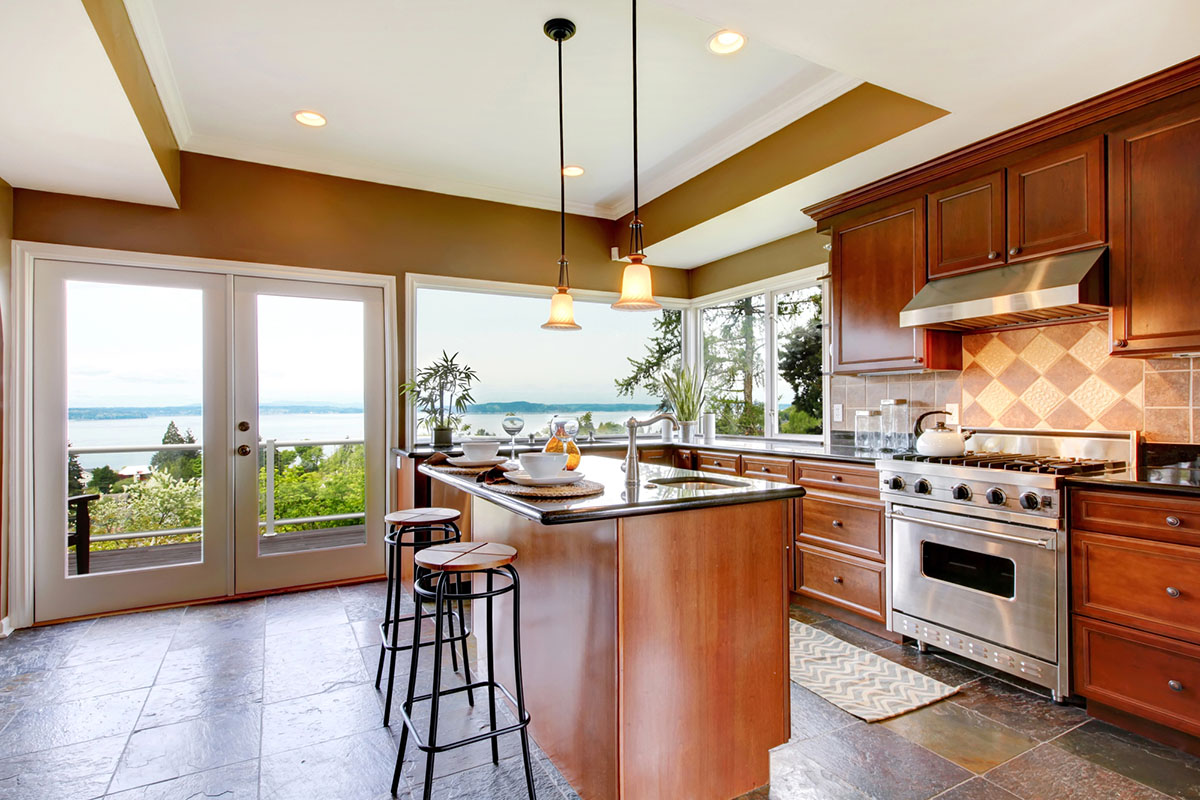Walk into any office and you’ll find dozens of surfaces that see daily wear: desks, floors, conference tables, breakroom counters, glass doors, and more. Keeping all of these clean is integral, not just for appearance, but for employee health and client perception.
Here’s the catch: not every surface should be cleaned the same way. Using the wrong product can dull finishes, leave streaks, or even shorten the life of office furniture. For facility managers and business owners, knowing which cleaners to use and where is a simple way to protect your investment.
Below, we’ll walk through the common areas of an office and highlight which types of products work best on each surface.
Desks and Workstations
Most office desks are made of laminate, veneer, or solid wood. Each material reacts differently to cleaning solutions.
- Laminate surfaces: Durable and resistant, but vulnerable to harsh chemicals. A mild all-purpose cleaner or diluted solution works best.
- Wood veneer or solid wood: Avoid ammonia-based glass cleaners that can dry and crack finishes. Use a wood-safe cleaner or a damp microfiber cloth, followed by a dry wipe.
Employees spend hours at their desks. Cleaners need to sanitize but also protect surfaces from long-term damage.
Computers and Office Electronics
- Keyboards, monitors, and phones are among the dirtiest items in any office, but they’re also sensitive.
- Use disinfectant wipes designed for electronics or isopropyl alcohol-based sprays with a microfiber cloth.
- Avoid spraying directly onto devices — moisture can seep into crevices.
Pro tip: Regularly wiping down shared electronics reduces employee sick days and keeps equipment functioning longer.
Conference Room Tables
These are often a focal point of client meetings, so appearance matters.
- Glass tables: A vinegar-based or ammonia-free glass cleaner prevents streaks and residue.
- Wood or veneer tables: Stick to wood-safe cleaners. Consider polish products if you want to maintain shine, but limit use to avoid buildup.
Harsh cleaners can leave visible streaks under lighting, distracting from otherwise professional environments.
Breakroom Counters and Kitchen Surfaces
Food prep surfaces should always be cleaned with products safe for food-contact areas.
- Choose EPA-approved disinfectants that are labeled food-safe.
- Avoid all-purpose cleaners with heavy solvents on counter surfaces where meals are prepared.
- Stainless steel appliances clean best with specialized cleaners to prevent streaks and fingerprint patterns.
Employees gather here daily. Safe disinfecting practices reduce cross-contamination and food-borne risks.
Restroom Fixtures
Restrooms require stronger products but also careful usage.
- Counters and sinks: Non-abrasive disinfectants protect finishes while keeping high-touch surfaces sanitized.
- Toilets and urinals: Use specialized bowl cleaners with appropriate disinfectant strength.
- Floors: Mop with neutral-pH cleaners safe for tile and grout to avoid damaging sealants.
Pro tip: Alternate between daily disinfectants and deeper periodic cleaning products to maintain both hygiene and longevity of surfaces.
Floors
Not all floors in an office require the same approach.
- Carpet: Spot-clean with carpet-safe detergents; for routine maintenance, vacuuming is key.
- Tile: Neutral pH cleaners protect tile sealant and grout.
- Vinyl or laminate: Avoid excess water and acidic formulas; use gentle cleaning products specific to the material.
- Hardwood (in some executive offices): Use only hardwood-safe products; avoid wet mopping entirely.
Floors are expensive to replace, and using the wrong product will shorten useful life quickly.
Windows and Glass Doors
Clients usually notice entryways first.
- Use streak-free glass cleaners (ammonia-free when near wood or tinted glass).
- Pair with microfiber or squeegee tools for professional finish.
Pro tip: Clean glass in shaded conditions; direct sunlight causes streaking more easily.
FAQs
What does “pH-neutral” mean, and why is it so important?
The pH scale measures how acidic or alkaline a substance is, from 0 (very acidic) to 14 (very alkaline), with 7 being neutral (like pure water). A pH-neutral cleaner is one that has a pH close to 7. This is important because very acidic cleaners (like vinegar) or very alkaline cleaners (like bleach or ammonia) can be highly reactive and can damage delicate surfaces like natural stone, sealed wood, and laminate. A neutral cleaner is the safest bet for most daily cleaning tasks.
Are “green” or “eco-friendly” cleaning products as effective as traditional ones?
Yes, modern green cleaning technology has advanced dramatically. Many plant-based and eco-friendly products are just as effective as their traditional chemical counterparts for daily cleaning tasks. The key is to look for third-party certifications (like Green Seal or EcoLogo) to ensure the product has been tested for both safety and performance.
We want to disinfect our office. Can we just use disinfecting wipes on everything?
While convenient, this is not always the best approach. First, many disinfecting wipes can be harsh and may not be safe for all surfaces (like sealed wood or stone). Second, for a disinfectant to work, the surface must remain visibly wet for a specific amount of time (called “dwell time”), which is often several minutes. Simply wiping and letting it dry immediately does not disinfect. It’s often better to use a spray disinfectant that is rated as safe for your specific surface and to follow the dwell time instructions carefully.
What’s the best way to keep our office windows and glass partitions streak-free?
The professional trick is to use the right tools. Instead of paper towels, use a high-quality microfiber glass cloth or a professional-grade squeegee. Use a dedicated, ammonia-free glass cleaner, as ammonia can sometimes leave streaks. If using a squeegee, work from top to bottom, wiping the blade after each pass.
This seems complicated. How can a professional service help?
A professional commercial cleaning service takes this entire burden off your plate. We don’t just clean; we are experts in surface science. Our teams are trained to identify the different materials in your facility and are equipped with the correct, professional-grade products and tools for each specific job. This ensures your office is not only hygienically clean but that all of your valuable surfaces are protected and maintained correctly.
Why Businesses Should Pay Attention
For all businesses, paying attention to cleaning products saves money over the long run, reduces employee illness, and ensures your office always makes the right impression.
With Texas heat and dust, offices face unique wear compared to other regions. High humidity in some months can also impact wood and fabric durability. Proper cleaning products keep surfaces looking sharp longer and help businesses project a polished image year-round.
Working with a professional hygiene partner ensures the right products are matched to the right materials, reducing long-term costs while improving employee wellbeing.








